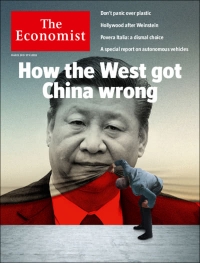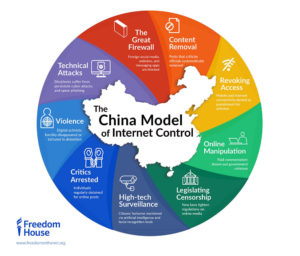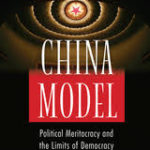 Since April 2017, the Chinese government has interned, imprisoned, or forcibly disappeared at least 435 intellectuals as part of its intensified assault on Uyghurs and erasure of their culture. This group is likely a small fraction of all Uyghur intellectuals suffering serious human rights violations, the Uyghur Human Rights Project reports:
Since April 2017, the Chinese government has interned, imprisoned, or forcibly disappeared at least 435 intellectuals as part of its intensified assault on Uyghurs and erasure of their culture. This group is likely a small fraction of all Uyghur intellectuals suffering serious human rights violations, the Uyghur Human Rights Project reports:
The UHRP has previously released three reports documenting the persecution of Uyghur intellectuals. In October 2018, UHRP identified 231 impacted intellectuals. A January 2019 update added 107 known cases, for a total of 338 intellectuals affected by these serious mass atrocities. In March 2019 a second update brought the total to 386.
According to the Xinjiang Victims Database, 49 individuals have died in custody or shortly after their release, including intellectuals, among them religious scholars Muhammad Salih Hajim and Abdulehed Mehsum; scholars Abdusattar Qarahajim and Erkinjan Abdukerim; and students Abdusalam Mamat, Yasinjan and Mutellip Nurmehmet.

Change.org
At this year’s World Economic Forum in Davos, the philanthropist George Soros caught everyone’s attention when he warned that the Chinese government’s use of artificial intelligence (AI) presents an “unprecedented danger” to its citizens and to all open societies. His reading of the situation was prophetic, CBC News reports:
Last month, The New York Times confirmed Soros’ fears when the newspaper revealed that the Chinese government is using AI-powered facial recognition systems to monitor and target members of the Uighurs, a persecuted Muslim minority in China. Human Rights Watch, in its recently released report titled “China’s Algorithms of Oppression,” provide additional evidence of Beijing’s use of new technologies to curtail the rights and liberties of the Uighurs.
In states with unaccountable institutions and frequent human rights abuses, AI systems will most likely cause greater damage. China is a prominent example. Its leadership has enthusiastically embraced AI technologies, and has set up the world’s most sophisticated surveillance state in Xinjiang province, tracking citizens’ daily movements and smartphone use, notes Steven Feldstein, a nonresident fellow in Carnegie’s Democracy, Conflict, and Governance Program.
 “Its exploitation of these technologies presents a chilling model for fellow autocrats and poses a direct threat to open democratic societies,” he adds. “Although there’s no evidence that other governments have replicated this level of AI surveillance, Chinese companies are actively exporting the same underlying technologies across the world.” RTWT
“Its exploitation of these technologies presents a chilling model for fellow autocrats and poses a direct threat to open democratic societies,” he adds. “Although there’s no evidence that other governments have replicated this level of AI surveillance, Chinese companies are actively exporting the same underlying technologies across the world.” RTWT
“Whoever said the pen is mightier than the sword obviously never encountered artificial intelligence” analyst Kendrick Foster writes for the Harvard Political Review.
With Russia and China making significant progress in developing their own AI technologies, it seems that the “race for AI supremacy and AI hegemony” is already on, explained Phillippe Lorenz, head of German think tank SNV’s Artificial Intelligence and Foreign Policy project, in an interview with the HPR.

Freedom House
But China’s internet censorship may not be as omnipotent as it appears.
The UK-based Comparitech set out to understand how the latest update to the Great Firewall has impacted the reliability of VPNs at bypassing local restrictions and protecting users against wiretapping by the Chinese government. As it would be unethical to ask a researcher to test this within China and risk the wrath of the Chinese government, it set up a virtual desktop in a Shenzhen data center to test 60 popular VPN apps. Some 13 VPNs worked, but only 9 worked without issue. RTWT
Should democracies “take a page from the Chinese playbook”?
The era of disruption has taken hold, with pressure on virtually every facet of the foreign policymaking process: politics, economics, sociocultural issues, the military, cyber, technology, and the environment, notes Daniel Wagner, CEO of Country Risk Solutions and author of the new book China Vision.
 This has coalesced into what amounts to mission impossible; how can foreign-policy decision-makers possibly craft strategies with any hope of remaining relevant and implementable in the long term with so many variables? he writes for The South China Morning Post:
This has coalesced into what amounts to mission impossible; how can foreign-policy decision-makers possibly craft strategies with any hope of remaining relevant and implementable in the long term with so many variables? he writes for The South China Morning Post:
The world’s governments would be wise to take a page from the Chinese playbook. Through its decades-long use of five-year plans, Beijing has become masterful at crafting long-term strategic vision, devoting the necessary resources and ensuring successful implementation. Such an approach has naturally spilled over into foreign policy, with Beijing simultaneously pursuing the Belt and Road Initiative, a military build-up and the pursuit of supremacy in artificial intelligence.
 China is not making a strategic effort to export its autocratic model of government, but research suggests the Chinese public is hawkish, putting pressure on leaders to act tough in international disputes, argues Jessica Chen Weiss, Cornell University associate professor of government.
China is not making a strategic effort to export its autocratic model of government, but research suggests the Chinese public is hawkish, putting pressure on leaders to act tough in international disputes, argues Jessica Chen Weiss, Cornell University associate professor of government.
“Where Chinese actions infringe on fundamental democratic principles such as the rule of law, fair elections, free speech and freedom of the press, the United States should confront those responsible and join other like-minded governments in protecting shared values,” she said in testimony before the U.S. House of Representatives’ Permanent Select Committee on Intelligence.
Several key steps, drawn from the NED’s Sharp Power report, can be taken to address Beijing’s influence efforts, the National Endowment for Democracy’s Christopher Walker told the hearing on “China’s Foreign Influence and Sharp Power Strategy to Shape and Influence Democratic Institutions.”







